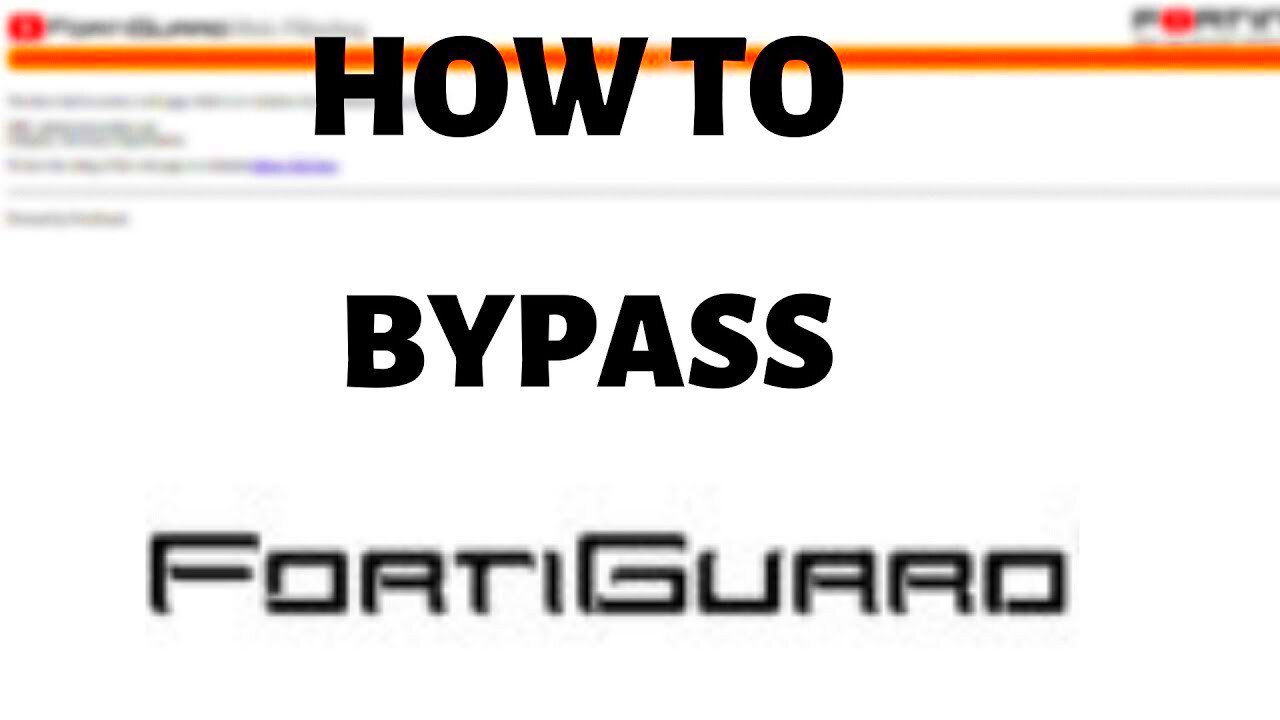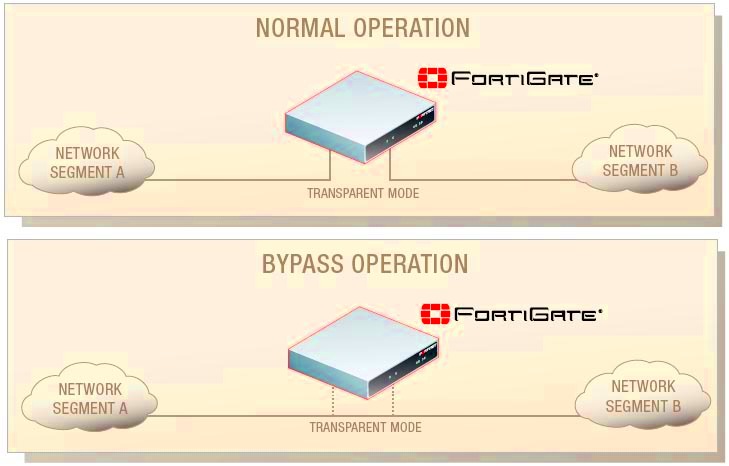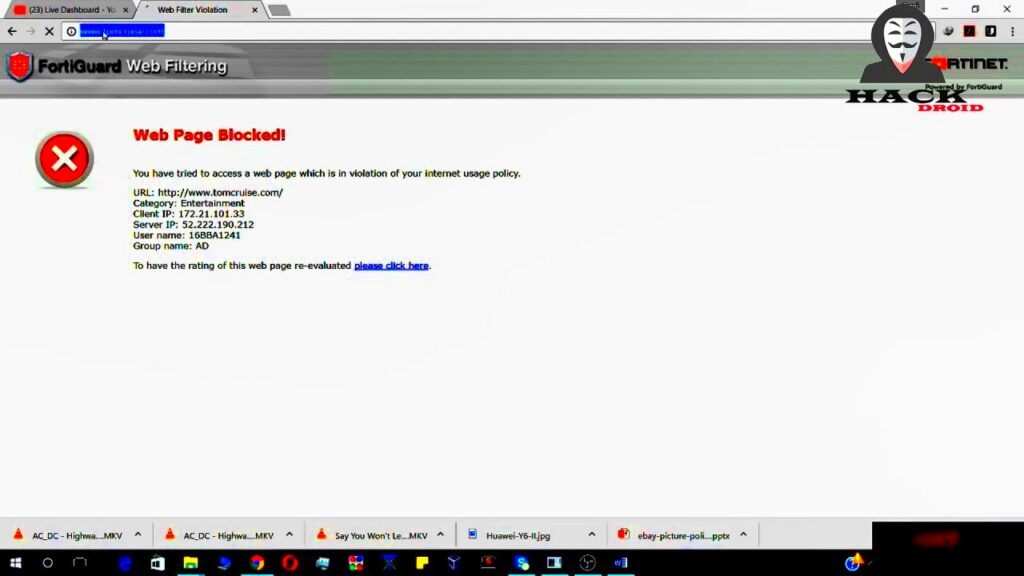Fortinet Fortiguard Web Filters are tools designed to help organizations control access to websites and online content. These filters serve several purposes, from enhancing security to improving productivity by restricting access to distracting or harmful sites. By analyzing web traffic, Fortiguard can categorize websites into different types, allowing administrators to set rules for what can be accessed within their networks.
These filters play a crucial role in protecting sensitive information and preventing malware attacks. They work by checking URLs against a constantly updated database. If a site is deemed unsafe or inappropriate, access is denied. Understanding how these filters operate can help users navigate their network restrictions more effectively.
Common Reasons for Access Denials

Access to certain websites might be denied for various reasons, including:
- Content Category Restrictions: Websites may fall into categories like gambling, adult content, or social media that are often blocked by organizations.
- Malware and Phishing Protection: Sites known for spreading malware or phishing attempts are flagged and denied access.
- Network Policies: Organizations may have specific policies restricting access to certain types of content to maintain productivity.
- Geographical Restrictions: Some websites restrict access based on the user's location, leading to denial within certain networks.
Being aware of these reasons can help users understand why they encounter access issues and how to approach potential solutions.
Also Read This: Royal Rumble 2024 Ticket Prices and Information
Techniques for Bypassing Web Filters

Bypassing Fortinet Fortiguard web filters may seem challenging, but there are various methods that users can try. Here are some popular techniques:
- Proxy Servers: Using a proxy server can mask your IP address and allow you to access blocked sites. However, choose reputable proxies to avoid security risks.
- Virtual Private Networks (VPNs): A VPN encrypts your internet connection and hides your browsing activities from your network, making it a popular choice for bypassing filters.
- Browser Extensions: Some extensions can help circumvent web filters by rerouting traffic through different servers. Make sure to check reviews before installation.
- Changing DNS Settings: Altering your DNS settings to use public DNS servers like Google or OpenDNS can sometimes help access blocked content.
While these techniques may provide access to restricted content, users should be cautious. Bypassing filters can violate company policies or legal regulations. Always prioritize safety and responsibility when navigating web restrictions.
Also Read This: How to Delete Subscribers on YouTube
Using Proxy Servers for Access
Proxy servers act as intermediaries between your device and the internet. When you use a proxy server, your requests to access websites are sent to the proxy first, which then retrieves the data on your behalf. This method can effectively mask your IP address, allowing you to access content that may be blocked by Fortinet Fortiguard filters. It’s like having a middleman who can help you sneak past restrictions.
Here are some benefits and drawbacks of using proxy servers:
- Benefits:
- Can provide access to blocked websites.
- Offers some level of anonymity online.
- Can improve internet speed by caching frequently accessed sites.
- Drawbacks:
- Free proxies may not be secure and can expose your data.
- Some websites may detect and block proxy traffic.
- Performance can vary, especially with free services.
Overall, using a proxy server can be an effective way to bypass web filters, but it's crucial to choose a reliable and secure option to protect your online activities.
Also Read This: Creative Ways to Style a Scarf for a Fashionable Look
VPNs as a Solution to Web Restrictions
Virtual Private Networks (VPNs) are becoming increasingly popular for bypassing web restrictions. A VPN creates a secure tunnel between your device and the internet, encrypting your data and hiding your IP address. This means that when you connect to a website, it appears as though you are accessing it from a different location, often allowing you to circumvent Fortinet Fortiguard filters.
Some key advantages of using a VPN include:
- Privacy and Security: VPNs encrypt your data, making it difficult for anyone to intercept your online activities.
- Access to Geo-Restricted Content: By connecting to servers in different countries, you can access content that may be blocked in your region.
- Reliable Connections: Most reputable VPN services provide fast and stable connections.
However, it's important to consider:
- Cost: Many reliable VPNs require a subscription, which might not be ideal for everyone.
- VPN Detection: Some organizations may have measures in place to detect and block VPN traffic.
Overall, a VPN is one of the most effective methods for bypassing web filters while ensuring your online safety.
Also Read This: How to Download Videos from Dailymotion Using IDM
Browser Extensions That Help Bypass Filters
Browser extensions can provide a convenient way to bypass web filters without the need for complex setups. These add-ons work directly within your web browser to redirect your traffic or access blocked content. They can be particularly useful for quick access to websites while maintaining your browsing experience.
Here are some popular types of browser extensions:
- Proxy Extensions: These extensions can help you connect to proxy servers quickly. Examples include Hola and Proxy SwitchyOmega.
- VPN Extensions: Some VPN providers offer browser extensions that function similarly to their full applications. Examples are NordVPN and ExpressVPN.
- Ad Blockers: While primarily used for blocking ads, some ad blockers can also bypass filters by modifying how pages load. Extensions like uBlock Origin can be effective.
When using browser extensions, consider the following:
- Security: Choose extensions from reputable developers to minimize risks.
- Compatibility: Not all extensions work with every website, so it may take some trial and error.
- Privacy Policies: Review the privacy policies to understand how your data is handled.
Using browser extensions can simplify the process of accessing blocked content, but always ensure that you prioritize your online security and privacy.
Also Read This: Can You Pay for YouTube Premium with Google Play
Staying Safe While Bypassing Filters
Bypassing web filters can open up a world of online content, but it’s essential to stay safe while doing so. Not all methods are secure, and some may even expose your personal information or violate policies. Here are some tips to help you navigate this process safely.
First and foremost, consider the security of the tools you use:
- Use Reputable Services: Whether it’s a VPN, proxy, or browser extension, always opt for services with good reviews and a solid reputation.
- Keep Software Updated: Regular updates can fix security vulnerabilities, so keep your browser, extensions, and security software up to date.
- Avoid Free Services: Free proxies or VPNs may log your data or show ads, putting your privacy at risk. Invest in a trustworthy service if possible.
Also, be mindful of your online behavior:
- Be Cautious with Personal Information: Avoid entering sensitive information on websites you’re accessing through filters.
- Use HTTPS: Make sure the websites you visit use HTTPS to ensure your data is encrypted.
- Understand Local Laws: Know the legal implications of bypassing filters in your area to avoid any potential issues.
By following these safety tips, you can enjoy a more secure browsing experience while exploring the web beyond filters.
Also Read This: Canva Image Color Inversion
Frequently Asked Questions
Here are some common questions people have about bypassing web filters:
- Is it legal to bypass web filters?
Legality can vary based on your location and the context of the bypass. Always check local laws and your organization's policies. - Will using a VPN slow down my internet?
While some VPNs can slow down your connection, reputable services often provide fast speeds. Testing different options can help you find a suitable choice. - Are free proxies safe to use?
Free proxies can be risky. They may expose your data or have security vulnerabilities. It’s generally safer to use a paid service. - What should I do if I encounter a website block?
Try using a different method, like a VPN or proxy, and ensure that you are aware of your organization’s policies regarding web access.
These FAQs can help clarify some common concerns about bypassing filters and staying safe online.
Conclusion
Bypassing Fortinet Fortiguard web filters can provide access to a wealth of information and resources. However, it’s crucial to approach this process with caution and awareness. Utilizing tools like proxy servers, VPNs, and browser extensions can effectively help you access blocked content, but they come with responsibilities. Always prioritize your online safety by choosing reputable services and being mindful of your actions.
As you navigate these options, keep in mind the legal implications and your organization’s policies. With the right knowledge and tools, you can enjoy a safer and more open browsing experience. Embrace the freedom of the internet while staying secure!
